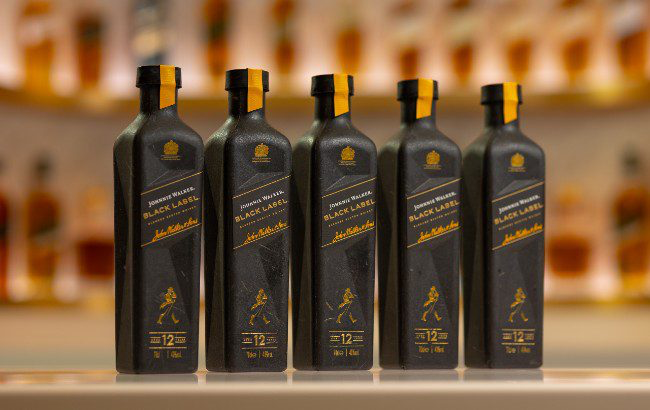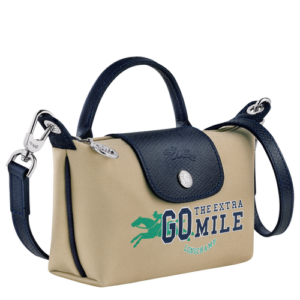In a groundbreaking move, Diageo has introduced the first 90% paper-based bottle for Johnnie Walker Black Label, one of the world’s most iconic Scotch whisky brands. As of September 2024, the innovative 700ml paper bottle will be trialed in the on-trade sector, marking a significant step in the company’s ongoing efforts to reduce its environmental footprint. This trial has garnered significant attention, as it not only underscores Diageo’s commitment to sustainability but also sets a precedent for the wider spirits industry in terms of packaging innovation.
The Development of the Paper Bottle
The paper bottle concept for Johnnie Walker is a result of Diageo’s collaboration with Pulpex, a company specializing in sustainable packaging solutions. Pulpex’s unique technology allows for the creation of bottles from renewable sources that are 100% recyclable. This innovative approach uses pulp from sustainably managed forests, and the resulting packaging is designed to have a lower environmental impact than traditional glass bottles, which require significant energy to produce and recycle.
The trialed bottle for Johnnie Walker Black Label is made up of 90% paper, with the remaining 10% being a thin, food-safe liner to ensure the whisky remains uncontaminated and of high quality. This liner is essential for maintaining the integrity and flavor profile of the whisky, which is particularly important given the premium nature of the Johnnie Walker Black Label brand.
Addressing Environmental Concerns
The move to paper-based bottles is part of a broader industry trend aimed at addressing the growing concerns over packaging waste, especially the reliance on single-use plastics and the carbon footprint of glass production. Traditional glass bottles, while recyclable, are energy-intensive to produce and transport due to their weight. By contrast, paper-based bottles offer a significantly lighter alternative, which reduces the carbon emissions associated with transportation and the overall supply chain.
For Diageo, which has committed to achieving net-zero carbon emissions by 2030, the introduction of a paper bottle for Johnnie Walker represents a key milestone in its sustainability journey. The company has already been recognized for its efforts to reduce water usage, improve energy efficiency, and promote responsible sourcing of ingredients. Now, with this latest initiative, Diageo is setting its sights on transforming packaging, one of the most visible and impactful aspects of its environmental strategy.
Impression
The decision to trial the paper bottle in the on-trade (bars, restaurants, and hotels) sector is a strategic one. The on-trade offers a controlled environment in which Diageo can assess customer and consumer feedback, as well as the operational practicality of using paper bottles in a professional setting. If successful, the paper bottle could become a regular feature in both the on-trade and off-trade markets, potentially replacing a significant portion of glass bottles in the years to come.
The implications for the wider spirits industry are substantial. Packaging has long been a cornerstone of brand identity, and many premium spirits brands have been reluctant to move away from glass, which is often associated with luxury. However, with sustainability becoming a key concern for consumers—particularly younger, environmentally-conscious generations—there is growing pressure for brands to innovate and adopt greener practices. Johnnie Walker’s move toward paper bottles could inspire other leading brands to explore alternative packaging materials without compromising product quality or brand perception.
Consumer Reception and Future Outlook
Consumer reception will play a critical role in determining the success of the paper bottle initiative. While sustainability is increasingly important to many customers, particularly millennials and Gen Z, the challenge lies in ensuring that the paper bottle still aligns with the premium image of Johnnie Walker Black Label. Diageo has been careful to maintain the bottle’s iconic branding and design, ensuring that the switch to paper does not diminish the product’s appeal.
If the trial proves successful, it could open the door to widespread adoption of paper-based bottles across Diageo’s portfolio and the broader spirits industry. Given the company’s global reach and influence, the Johnnie Walker paper bottle could become a catalyst for long-term change, driving the industry toward more sustainable practices.
Diageo’s introduction of a 90% paper-based bottle for Johnnie Walker Black Label is a bold and innovative move in the ongoing quest for sustainability within the spirits industry. By trialing the bottle in the on-trade, the company is taking a calculated risk that could ultimately lead to a more environmentally-friendly approach to packaging across the board. As consumer expectations shift toward sustainability, this initiative may not only transform Johnnie Walker’s image but also set a new standard for packaging in the global spirits market.
No comments yet.








